Waiting for Godot Summary
Waiting for Godot - Summary
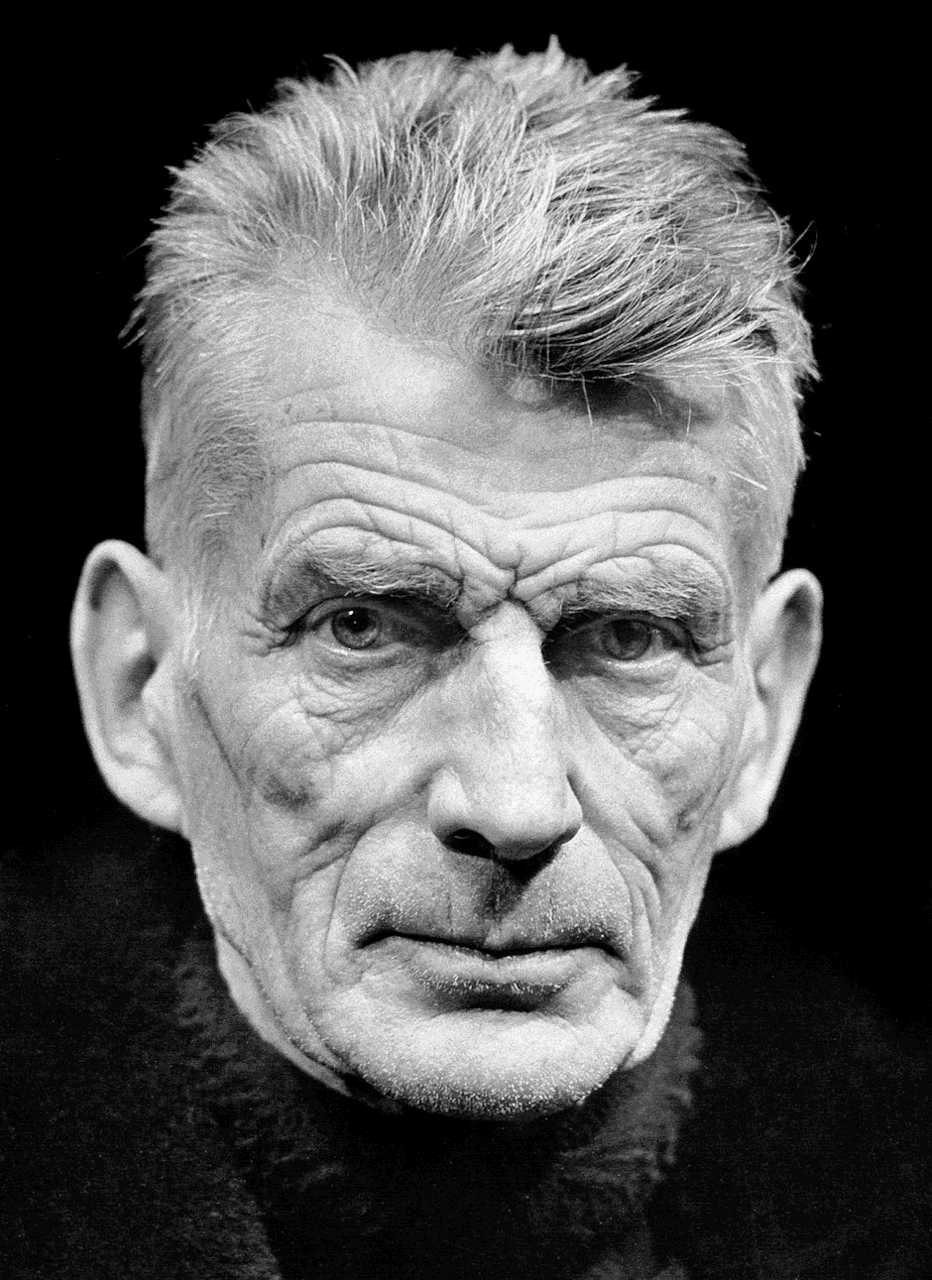
Samuel Beckett
Waiting for Godot by Samuel Beckett was originally published in French with the title En Attendant Godot in 1952 and it was later translated into English by Beckett himself in 1954. The subtitle of the play is “a tragi-comedy in two acts”. The play belongs to the category of the Theatre of the Absurd which emerged during the post-world war era. It muses on the themes such as waiting, boredom, loneliness, suffering/struggle, question of existence/identity, etc. The play has four main characters and one minor character. The characters are Vladimir, Estragon, Pozzo and Lucky along with a boy messenger who appears at the end of both the acts.
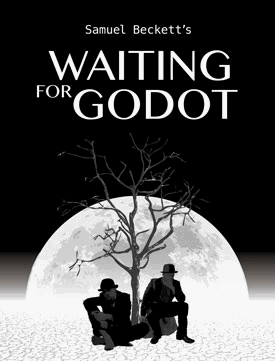
The play presents two characters Vladimir (known as Didi) and Estragon (known as Gogo), waiting for the arrival of a person named Godot who never arrives. These characters are tramps and they are not sure about the identity of Godot since they haven’t met him. They are later joined by two others – Pozzo, who is the master and Lucky, the slave. While waiting, both Vladimir and Esragon engage in a variety of discussions in order to pass the time. They both wear bowler hats and suits. The background or the setting is highly barren except for a tree with two leaves. The setting indicates the sterile nature of the world.
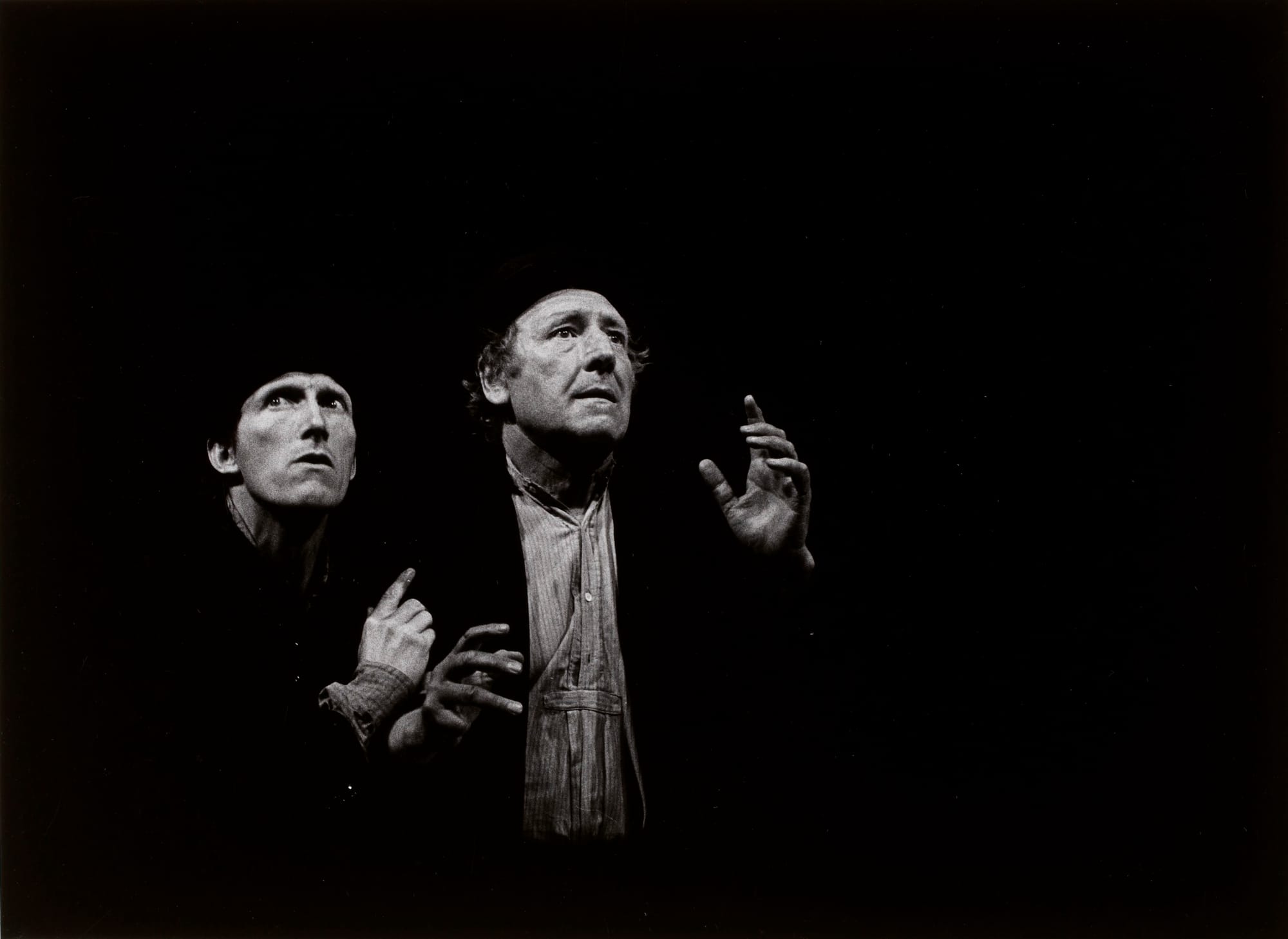
Vladimir is a Russian and Beckett presents him as the strongest and somewhat sensible person in the play. He is assertive, clearly an initiator, and he is the one character who is most hopeful for the entrance of Godot in the play. He consistently motivates Estragon to continue waiting and also protects him. Estragon is Spanish and is the more basic of the two. He is not concerned with either religious or philosophical matters. Estragon is dependent upon Vladimir, and essentially he performs what Vladimir tells him to do.
The play follows a symmetrical pattern or it focuses on the concept of duality – two acts, characters as pairs (Vladimir and Estragon; Pozzo and Lucky; two boy messengers), repetition of dialogues, etc.
Summary of Act I
When the play begins, the scene is a country road and the time is evening. Estragon is busy trying to take off his boot (since he has nothing else to do other than to wait for Godot).
Estragon: Nothing to be done (Remember this line which echoes the whole theme of the play and an often repeated piece. This statement sums up the attitude of humanity, the scenario of the world, etc.)
In the meantime, Vladimir enters telling Estragon that he should not give up hope since there are so many things remaining and to be tried out. We understand that they have rejoined after a short break. Vladimir feels happy to see Estragon back (both of them wishes to separate but they are unable to do so).
Vladimir then enquires where Estragon spend the last night – “May one inquire where His Highness spent the night?”. Then we come to know that, Estragon had spent the night in a ditch and whenever he tries to sleep there, a few men comes and hits him (quite ambiguous regarding the reason of this hitting but Vladimir gives an indication about it in the later part of the play).
Then they think about the wonderful past they enjoyed – “Hand in hand from the top of the Eiffel Tower, among the first. We were respectable in those days. Now it’s too late. They wouldn’t even let us up” – this line presents the condition of humanity. People who had a glorious past are groping in darkness now. War has demolished everything and people have lost their hopes and dreams. So once, they were able to climb up the Eiffel tower, but now, they won’t even let these characters enter because they have lost dignity and even don’t have a proper dress.
The conversation between the two characters actually lack a direction and it is deliberate since Beckett wanted to illustrate the futility of language. One can’t convey all the emotions through language as it is ineffective.
Then we come to know that Vladimir too has a problem. For Estragon, the boot is the trouble and for Vladimir, it is the kidney. Every time when he tries to urinate, he is unable to do that, so he suffers from the pain. To get a relief from this, he consumes garlic which has in fact given him a bad smell. So, every time, when they try to embrace, Estragon recoils due to the bad smell in the mouth of Vladimir.
The discussion moves to the Bible (discussion of religious images). “Did you ever read the Bible?” - to this question, Estragon replies and it reveals his attitude. He is completely unaware of the ‘holy’ nature of Bible. He says that, “I remember the maps of the Holy Land. Coloured they were. Very pretty. The Dead Sea was pale blue. The very look of it made me thirsty. That’s where we’ll go, I used to say, that’s where we’ll go for our honeymoon. We’ll swim. We’ll be happy” – see how humorously Beckett has depicted this part when Estragon says that ‘blueness’ of the sea made him feel thirsty. So, there’s nothing holy for Estragon regarding the Bible.
They continue to talk about the Biblical images – remember the story of the four evangelists who were the witnesses of Christ’s crucifixion. They talk about the two thieves who were on both sides of Christ and were punished along with him. Both Vladimir and Estragon are trying to find excuse thinking about the possibility of being rescued from the chaos. For example, they say that, out of the four evangelists, only one mentioned about the thieves (so the chance of being saved is 25%) and in the other story, one thief was saved because the other one abused Christ (so the chance is 50%). Here it means, one of them is sure to be saved – either Vladimir or Estragon – just finding a matter for talk.
Estragon says that, “People are bloody ignorant apes” who follow the same stories/patterns, etc. leading the world to chaos. They are never ready to accept anything new.
Let’s Go.
We can’t.
Why not?
We’re waiting for Godot.
These lines summarize the theme of the play. The most repeated one along with “nothing to be done”.
The discussion now turns to the tree (they are trying to find new topics for discussion in order to pass time). They argue about the type of tree which is there at the place where they are waiting. One says it is a bush while the other says it is a shrub. They also talk about what is to be done if Godot fails to turn up. The answer is simple. They should return to the same place and wait again because they don’t have any other option other than to wait for Godot.
Now they talk about the place and also about the day – “But what Saturday? And is it Saturday? Is it not rather Sunday? (Pause.) Or Monday? (Pause.) Or Friday?”
Then, Estragon falls asleep but wakes due to a nightmarish dream. Estragon always jumps up from the sleep as he’s frequently disturbed by frightful dreams (another image used by the playwright to indicate the painful past of the characters – war in the background).
Now the discussions turn bawdy (vulgar) with a few sexual jokes. Remember, this play does not have any women characters. Beckett tries to illustrate that, if women are absent, men will be childish, lack a motivation, lack sense in behavior and even actions. Estragon tries to narrate the story of an English man who went to a brothel but he leaves the story incomplete.
Meanwhile, Vladimir leaves the stage (to urinate) and Estragon encourages him but Vladimir returns after failing in his attempt again (the physical and mental pain of both the characters are highlighted). They try to embrace but the smell of garlic troubles Estragon.
Now the conversation moves to another direction. They decide to hang themselves and they feel that it will give them sexual satisfaction. They also talk about the possible demands they need to put before Godot when he comes.
The next thing is about eating. Estragon says that, “I’m hungry!”. Vladimir gives a turnip to eat and both of them argue about it – whether it’s a carrot or turnip (another instance of pointless conversation).
Entry of Pozzo and Lucky
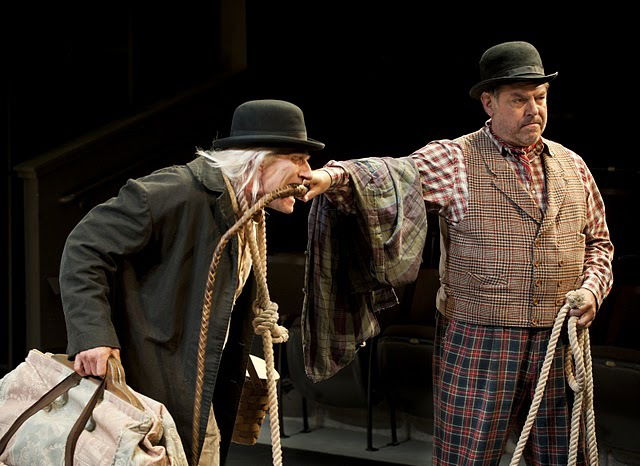
Pozzo and Lucky, the master and the slave – they are bonded with the help of a rope (physically tied while Vladimir and Estragon are mentally/emotionally tied, an invisible bond). Pozzo is an Italian and Lucky is British.
Pozzo introduces himself to Vladimir and Estragon. He is highly egoistic and autocratic – behaves like a dictator and tortures Lucky (remember the name – though his name is Lucky, he leads the life of a slave).
Lucky carries heavy luggage which indicates man’s burdens. He falls asleep whenever he gets a break. Vladimir and Estragon inspects Lucky closely and discovers a running sore on his neck. Vladimir says that Lucky looks a bit effeminate. Both of them try to speak to Lucky but Pozzo warns them to be careful.
Pozzo eats the chicken bone and drinks the wine. He leaves the bone. Estragon is so hungry that he requests to give the bone that is left over by Pozzo. Vladimir feels so ashamed watching Estragon’s behavior and he scolds him. Pozzo pacifies Vladimir and he says that, Lucky has the right of the bone and if he is willing, Estragon can take it – “No no, he does well to ask. Do I need the bones? (He turns them over with the end of his whip.) No, personally I do not need them anymore. (Estragon takes a step towards the bones.) But . . . (Estragon stops short) . . . but in theory the bones go to the carrier. He is therefore the one to ask. (Estragon turns towards Lucky, hesitates.) Go on, go on, don’t be afraid, ask him, he’ll tell you”.
Pozzo after eating becomes more eloquent and he gets ready for a speech and he wants both Vladimir and Estragon as listeners (it is like a play-within-a-play, both Estragon and Vladimir as spectators watching Pozzo perform). They put another question to Pozzo “Why doesn’t he (Lucky) put down his bags?”
Pozzo expresses his wish to get rid of Lucky and listening to this, Lucky weeps. Estragon tries to give a handkerchief to Lucky but he kicks Estragon in his shins. He cries aloud.
Pozzo explains how Lucky mistreated him. Listening to this, Vladimir and Estragon rebukes Lucky because they feel that Lucky is responsible for the plight of Pozzo (this is an indication of mob psychology – at one point, they felt sympathy for Lucky but after listening to Pozzo, their attitude changes). They watch the performance delivered by Pozzo in an amusing manner.
Now, Pozzo wishes to give something back to Vladimir and Estragon as part of entertainment since they watched Pozzo’s performance. He says that he will make either Lucky dance or think aloud (speak). He dances and later speaks or thinks aloud after putting the hat on his head.
Reactions of the three characters to the speech of Lucky are entirely different. About Lucky’s speech, it is disconnected and lacks a point. It is seemingly an incoherent speech, a jumble of words. Beckett deliberately confuses the audience through the speech of Lucky – absurd and illogical. But in the speech, he tries to prove a few things like,
- Absence of a God
- Futility of human life
- Role of destiny
- Brutality of the masters
- Suffering of humanity.
Finally, they stop Lucky’s speech by removing the hat from his head. They beat him up. Pozzo and Lucky leaves.
A boy messenger enters.
He informs the tramps that, “Mr. Godot told me to tell you he won’t come this evening but surely tomorrow”.
The first act thus comes to end with the waiting being continued.
Summary of Act II
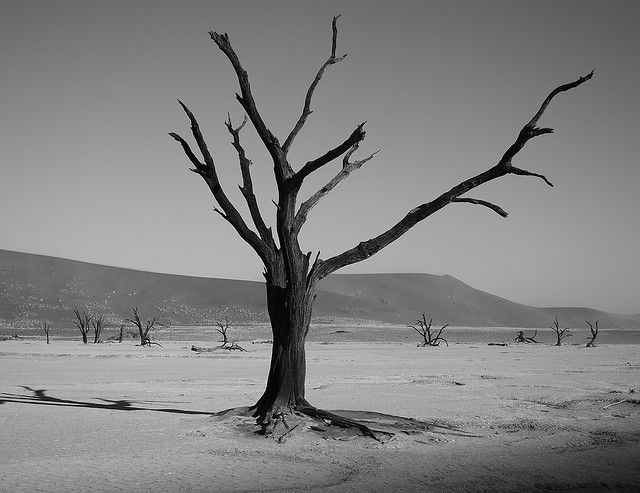
The second act of the play too begins on the same note. It is the next day, same time and same place. The audience can see the boots of Estragon and the hat of Lucky lying on the ground. The only change is for the tree which now has four or five leaves instead of two which was there in the first act. The change in the number of leaves simply suggests the passage/movement of time and it is not connected with optimism or hope.
Vladimir enters by singing a song which is a doggerel (a comic verse composed in irregular rhythm). The song is extremely funny and is about a dog which tried to steal a piece of bread.
Estragon enters and the audience comes to know that they are meeting after a short gap. Estragon is extremely sad and Vladimir enquires the reason for the same. He asks whether the group came again to beat Estragon (like in the first act when he received a severe battering while lying in the ditch). They talk about the pain of separation and also about the ‘beating’ episode. Estragon says that, “There was ten of them”. Vladimir once again questions Estragon and makes him realize that “Ah no, Gogo, the truth is there are things that escape you that don’t escape me, you must feel it yourself” (it means that it is a question of perception. The right of one person will be the wrong for the other. In this case, Estragon feels that he does not deserve a beating but Vladimir makes him understand that his notion is one-sided. May be the ten other men too will have opinions which we are not sure. This is another absurdist technique employed by Beckett to highlight the concept of ‘perception’).
Both of them express their ‘happiness’ of being together though they are not sure about the emotion. Vladimir tries to make Estragon remember about all the events that happened last day like, their decision to hang, arrival of Pozzo and Lucky, etc. but Estragon does not remember anything (forgetting as one of the main themes of the play). They try to recollect their past simply to pass time.
Repletion of dialogues and cacophony become part of the play.
VLADIMIR: They make a noise like feathers.
ESTRAGON: Like leaves.
VLADIMIR: Likes ashes.
ESTRAGON: Like leaves.
They continue to wait and in the meantime try to do different things to pass time (use of pauses and silence by the playwright). They talk about last day’s events (the tree, Pozzo and Lucky, bones, the kick, carrot and turnip, etc.)
Estragon tries to sleep. He takes a foetal posture which is the most secure position. Vladimir sings a lullaby to soothe Estragon but as always he jumps from sleep experiencing a nightmare. Vladimir tries to calm him down.
Every moment they try to leave the place but soon realize that they can’t as they are “Waiting for Godot”. They decide to play Pozzo and Lucky in order to pass time. They take the hat of Lucky for the act. They play with the hat. They begin to curse and abuse one another.
Once again they hear noise and they think that Godot has arrived. They soon come to know that Pozzo and Lucky have returned. But this time there is a difference. Pozzo has become blind and Lucky dumb. Pozzo calls for help as he falls down on the ground but both the tramps, Vladimir and Estragon are confused regarding the identity of these two characters. Finally they decide to help Pozzo and Vladimir says:
“Let us not waste our time in idle discourse! (Pause. Vehemently.) Let us do something, while we have the chance! It is not every day that we are needed. Not indeed that we personally are needed. Others would meet the case equally well, if not better. To all mankind they were addressed, those cries for help still ringing in our ears! But at this place, at this moment of time, all mankind is us, whether we like it or not. Let us make the most of it, before it is too late!”
This is the most sensible dialogue in the play which is coherent and very significant. Vladimir stresses on the need of doing something (contradictory to what they’ve been saying as nothing to be done). He says that they should not waste time by talking about futile things and it is time to act or “do” because they have a chance/opportunity now. He also says that they are not needed every day (better people will come, more efficient too) but now the opportunity is for them to talk and act on behalf of all the humans. He says, “let us make the most of it”). Beckett draws the picture of the modern world where people sit idle and talk about various philosophies. The cries for help from humanity lingers in the air and without sitting idle, it is time to help the world.
This statement should be read along with the one which appears in the first Act – “The tears of the world are a constant quantity. For each one who begins to weep, somewhere else another stops. The same is true of the laugh”. (He laughs.) – Sadness and the plight of the man remains the same all over the world – Universality of the play (another theme).
Both the tramps call different names to identify Pozzo. They call names like Abel and Cain (first two sons of Adam and Eve – again Biblical images – fall of man from the Garden of Eden) and Pozzo responds which once again underline the universal nature of the play. After a few more futile chats, both Pozzo and Lucky leave the stage.
The boy messenger returns with the message from Godot that he won’t come today but he will come for sure tomorrow. The boy leaves and the two tramps continue to wait. The play ends:
VLADIMIR: Well? Shall we go?
ESTRAGON: Yes, let's go.
They do not move.
They say that they should move but they are unable to move. The characters of both Vladimir and Estragon remain flat without any change. Thus the play comes to an end.
As Martin Esslin writes, “it is open to philosophical, religious and psychological interpretations, yet above all, it is a poem on time, evanescence and the mysteriousness of existence, the paradox of change and stability, necessity and absurdity” (Theatre of the Absurd, 39 – 40).
Ranjith Krishnan K R